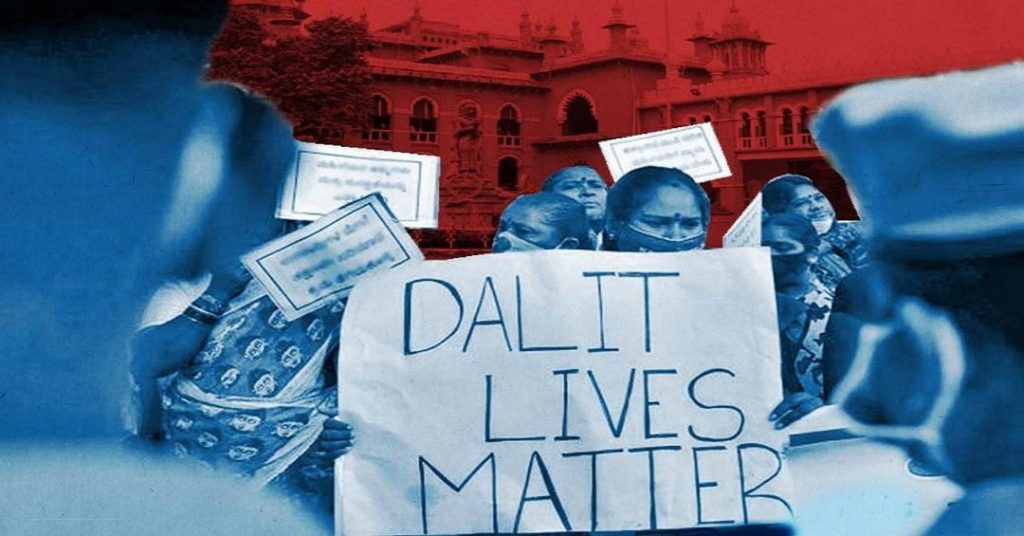
Suspicious Death of TN SC Farmer Sparks Caste Atrocity Allegations
The death of K Murugan, a 42-year-old farm labourer from the Scheduled Caste community in Sennakkalpalayam near Dharapuram, Tamil Nadu, has sent shockwaves across the state and beyond. Murugan’s body was found hanging from a tree on June 26, with his hands reportedly bound. The incident has sparked outrage among Dalit rights groups, who have alleged foul play and caste-based violence.
According to sources, Murugan was last seen alive on the evening of June 25, when he returned to his home after a day’s work on the farm. His family members reported him missing the next morning, prompting a search operation in the nearby areas. It was during this search that his body was discovered hanging from a tree, with signs of struggle and evidence of binding on his hands.
The police have launched an investigation into the incident, but the family and Dalit rights groups are demanding a thorough and impartial probe. They claim that Murugan’s death is a clear case of caste-based violence, and that the police are trying to cover up the truth.
The incident has sparked widespread outrage and protests across the state, with Dalit rights groups and activists demanding justice for Murugan’s family. The Tamil Nadu government has also promised to take action and ensure that those responsible for the crime are brought to book.
The death of K Murugan is not an isolated incident. Caste-based violence and discrimination are rampant in India, and Dalit communities continue to face discrimination and violence at the hands of the dominant castes. According to a report by the National Commission for Scheduled Castes, there were over 47,000 cases of atrocities against Dalits in 2020 alone.
The fact that Murugan’s body was found hanging from a tree, with his hands bound, has raised suspicions about the circumstances surrounding his death. Dalit rights groups have pointed out that this is a classic modus operandi for caste-based violence, where the victim is often found hanging from a tree or a gallows.
The police have claimed that they are investigating all angles, including the possibility of suicide. However, the family and Dalit rights groups are skeptical, pointing out that Murugan had no history of mental health issues or depression. They argue that the circumstances surrounding his death are suspicious, and that the police are trying to cover up the truth.
The incident has also highlighted the lack of accountability and impunity enjoyed by those responsible for caste-based violence. Despite the existence of laws and policies aimed at protecting Dalits, violence and discrimination continue to be rampant.
In recent years, there have been several high-profile cases of caste-based violence in Tamil Nadu, including the murder of a Dalit youth in 2018 and the gang rape of a Dalit woman in 2020. Despite these incidents, the perpetrators have often gone unpunished, and the victims’ families have been left to face the consequences alone.
The death of K Murugan is a stark reminder of the ongoing struggle for justice and equality faced by Dalit communities in India. It is a call to action for all those who believe in the values of equality and justice to stand up and demand accountability.
As the investigation into Murugan’s death continues, it is essential that the police and the government take a thorough and impartial approach. The family and Dalit rights groups must be given a platform to express their concerns and demands, and the perpetrators of the crime must be brought to book.
Ultimately, the death of K Murugan is a tragedy that highlights the need for urgent action to address the systemic issues of caste-based violence and discrimination. It is a reminder that the struggle for justice and equality is far from over, and that we must continue to stand together to demand a more just and equitable society for all.






